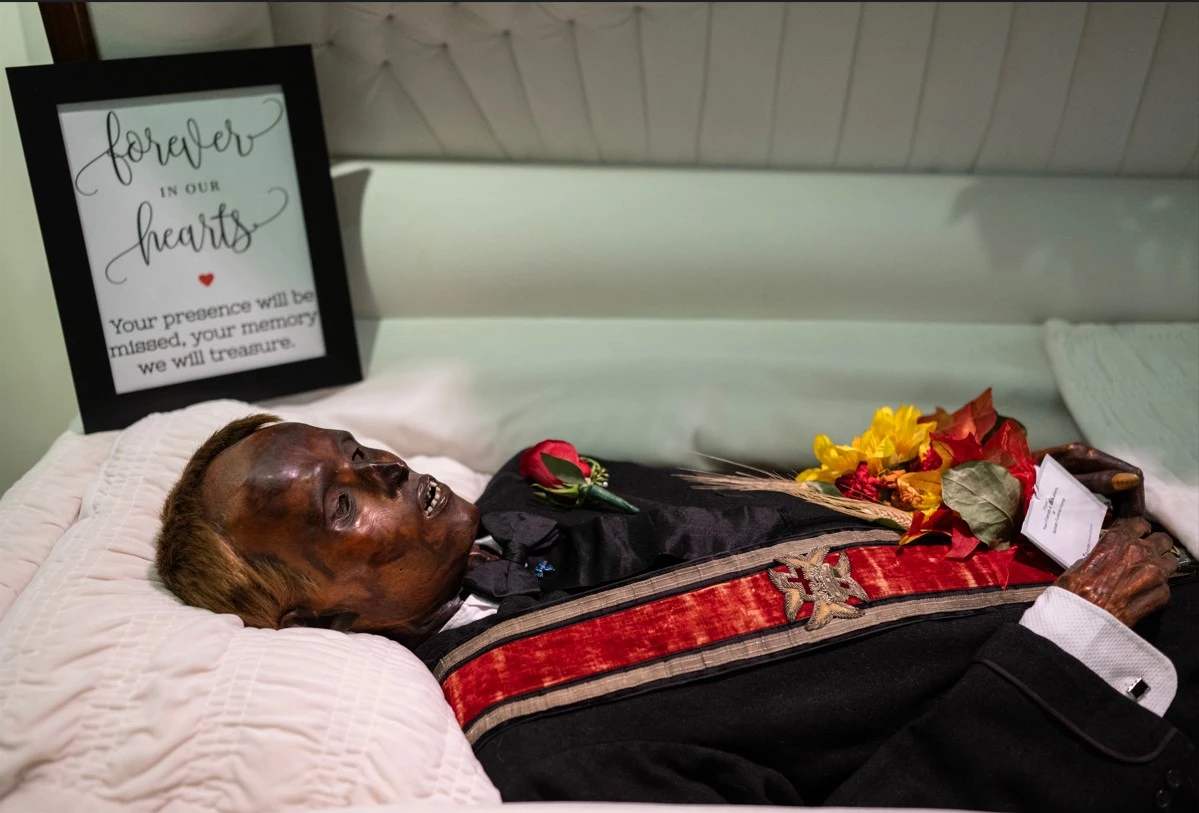RIP Stoneman Willie: US mummy buried after 128 years

Stay tuned with 24 News HD Android App

After more than a century living with a macabre mystery, the US town of Reading, Pennsylvania closed the casket Saturday on its oddest-ever resident -- a mummified man who was finally buried.
Crowds of people have lined up in recent days to pay their respects, snap photos or gaze with bewildered awe on a scene unlikely to ever be repeated in the United States.
"Stoneman Willie" was the nickname bestowed long ago on an alleged thief who died in 1895 in jail and was taken to the Theo C. Auman Funeral Home when no one claimed the body, before being accidentally mummified by undertakers.
"Fast-forward 128 years and he's still here," funeral home director Kyle Blankenbiller told AFP ahead of the burial.
At his interment, a crowd gathered under overcast skies, circling around Willie's black tombstone at a local cemetery for one final farewell.
The man who became known as Willie gave a false name when he was jailed, but his true identity was tracked down and finally revealed during Saturday's ceremony, a fitting end to his life -- and bizarre afterlife.
He was revealed to have been named James Murphy as his gravestone was unveiled at the climax of funeral events -- which also included his remains joining a recent parade commemorating Reading's 275th anniversary.
Both names are etched on his tombstone, though his real name only in small print at the bottom.
- 'Gawked at enough' -
The corpse has been in an open casket for almost his entire stay at the funeral home, until being loaded into a motorcycle-drawn hearse Saturday.
His leathery skin and smooth sunken facial features have been the object of fascination for thousands, including countless curious locals, researchers and, in decades past, schoolchildren on class trips.
Willie had become a quirky fixture of Reading history, "our friend" who now got a well-deserved sendoff, Blankenbiller said.
According to Willie's cellmate, the man arrested for pickpocketing adopted the fictitious name James Penn because he did not want to shame his wealthy Irish father.
On his death, no next of kin were located and the body was sent to Auman's.
With embalming still an emerging science, Blankenbiller said, Auman experimented with a new formula.
"The intensity of the concoction that he used" led to Stoneman Willie's mummification, a moisture removal process that forestalls decomposition.
Now, "he's been gawked at enough," Blankenbiller said. Burying Stoneman Willie during anniversary commemorations for the city was the "reverent, respectful thing to do."
Among those saying goodbye in recent days was Berks County resident Michael Klein, who was fascinated by the "mystery of who this guy really was," he told AFP.
Stoneman Willie was buried in a vintage black tuxedo, fittingly from the 1890s.
"Everyone comes to America to live the American dream. Nobody comes to die in a prison unknown," Klein said.
